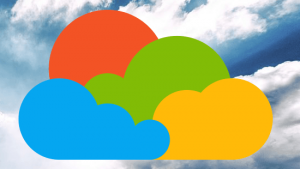- Adam Mansfield
- Reading Time: 4 minutes

When Microsoft announced they would layoff up to 4,000 sales and marketing jobs in the early weeks of its new fiscal year, we quickly shared via podcast what it means for your renewal.
A few highlights from Microsoft’s announcement:
- The exact number of individuals affected has not been confirmed
- Most of the layoffs will occur outside of the U.S. and will also impact employees in sales support roles
- Some of these individuals will have the opportunity to remain at Microsoft in a different role. And based on the recent Salesforce CEO Marc Benioff’s tweet, they may even have a job waiting for them at Salesforce!
The announced layoffs should not have come as too much of a surprise given Microsoft’s recent decision to overhaul the Sales and Marketing organization. Although expected layoffs were not previously mentioned:
- The rationale for the overhaul was addressed in an internal memo from the EVP of Worldwide Commercial Business, Judson Althoff
- The memo was signed by Global Sales Subsidiary Chief, Jean-Phillippe Courtois, and Chief Marketing Officer, Chris Capossela, two executives responsible for a successful Sales and Marketing organization.
It is quite clear from the layoff announcement and memo that there will be a go-forward expectation that sales employees will be required to operate in new ways.
Every Silver Lining has a Cloud
Microsoft Corporate VP Communications Frank Shaw recently mentioned the layoffs will be done to evolve the skill sets needed requiring Sales to have more technical and industry-specific knowledge than before. Sales will also be focused on the following six priority industries:
- Manufacturing
- Financial Services
- Retail
- Health
- Education
- Government
This new focus and technical expertise will mean that Sales will be in the best position to convince customers to migrate to the cloud and most effectively sell Microsoft’s cloud solutions, Microsoft’s clear mission. They are touting an enormous $4.5 trillion market opportunity for Microsoft in the coming years.
The key areas for Microsoft to seize this opportunity:
- Expand Microsoft’s cloud offerings in data analysis and AI
- Help companies in every industry to become digital businesses using Microsoft tools
To push more and more customers into the cloud, Microsoft plans to have a sales organization that is not only skilled in closing a deal, but more importantly, prepared and able to effectively explain to customers how Microsoft cloud solutions can be used to drive actual value back to the customer’s business.
Even last year Althoff mentioned that Microsoft would be adding roughly 1,000 sales employees with expertise in cloud solutions and that the employees that are hired will have a mix of technical and sales experience to help customers make use of cloud software.
Microsoft’s recently announced layoffs and the overhaul of the sales organization align with their sales strategy to focus more on the cloud and less on traditional server and desktop solutions. This focus comes directly from the top. Since 2014, when Satya Nadella transitioned from Microsoft’s cloud division to the role of CEO, they have made a dramatic and successful transition to a cloud-focused organization.
Within Microsoft, the personal computer software business is no longer considered a growth engine, it is all about getting customers to adopt Microsoft’s various cloud solutions. Those target solutions include Office 365, Azure, Dynamics 365 or the recently announced cloud bundle Microsoft 365 (Microsoft 365 Enterprise is really nothing more than a re-branding/naming of the Secure Productive Enterprise).
How Your Renewal Will Fuel Microsoft’s Ambitious Growth Plan
Given all of this, expect Microsoft to push its various cloud products even harder into your upcoming renewal. This is especially the case when your organization has yet to start down the cloud adoption path. Here’s what you should know:
- The cloud “gateway product” for Microsoft is Office 365. If you have yet to make the migration for even a small subset of your organization, expect Microsoft to push very hard.
- If Azure has yet to be brought up, it will be. We fully expect Microsoft’s recently announced pay-as-you-use Azure Stack solution to be incorporated into most renewal discussions. This is especially the case where a customer is considering or already using AWS.
- Expect the newly revamped sales organization to approach you from both a technical as well as a business value perspective.
Beyond pushing Microsoft’s cloud products harder into your organization and upcoming renewal, we have already seen a significant amount of time being spent by Microsoft’s sales organization circumventing the IT department and going directly to the line of business executive to close the deal.
It will be important, more so now than ever, to ensure lines of communication are open within your organization because Microsoft is good at closing a deal with the business executive before it even gets to the IT or procurement departments. When this happens, the little leverage you may have had has been significantly decreased.
Once you Decide to Jump into the Cloud
If your organization has a renewal coming up and is considering adopting one of Microsoft’s various cloud solutions it will be incredibly important to:
- Ensure you navigate the discussions effectively from a position of power.
- Ensure you can validate that the one-time deep discount is in fact the best Microsoft can do and that you are getting the proper level of flexibility to accommodate the timing of your actual needs.
- Ensure you have the proper downstream price protections in place. We have seen far too many organizations that have come to us looking for assistance with their renewal after being hit with a significant increase simply because Microsoft could do it, not because there was any additional value being added to the cloud solution they got them to adopt 3 years ago.
Related Blogs
Strategic Microsoft Renewal Scenarios: How to Prepare and Stay in Control
Microsoft’s Recent Price Increases: What You Need to Know and How to Overcome Them
How SAP’s Latest Announcements Impact Your Transformation Journey
About the Author
